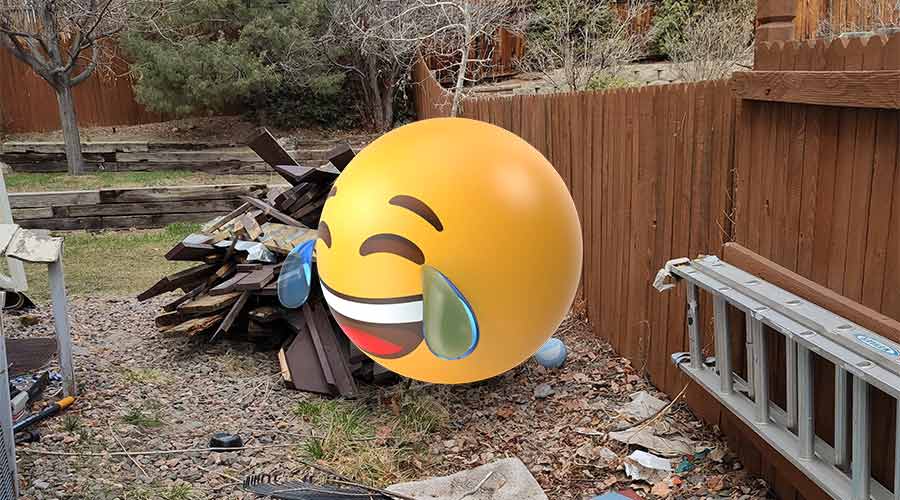Denver and the state of Colorado have established robust regulations to manage waste effectively, promote sustainability, and prevent improper disposal. This is continuous from the Pricing page.
These regulations, which range from standard residential junk removal regulations to quirky, location-specific rules, emphasize environmental consciousness and community safety.
Denver’s Pay-as-You-Throw (PAYT) Program, introduced in 2023, is a notable shift in the city’s approach to managing waste. It emphasizes accountability and environmental responsibility by tying waste disposal costs directly to the amount of waste a household produces. Here’s a deeper dive into how the PAYT program operates and its impact on Denver residents.
Purpose and Motivation Behind the Pay-as-You-Throw Program
Denver’s Pay-as-You-Throw Program was created to address increasing waste production while incentivizing recycling and composting to lower landfill contributions. By attaching a direct cost to the volume of waste each household generates, the program aligns with Denver’s broader environmental goals, encouraging residents to actively sort and reduce their waste output.
Junk Removal Regulation Fees Structure
The PAYT program uses a tiered monthly Fee system based on the size of the trash cart residents select.
Here’s a breakdown of the available options:
- Small Cart (35-gallon): $9 per month
Ideal for households that generate minimal waste and prioritize recycling and composting, this cart size encourages minimal trash output. It allows up to three bags of trash per collection. - Medium Cart (65-gallon): $13 per month
The medium option offers more capacity, accommodating up to five bags. It’s aimed at households with moderate waste who are still willing to focus on composting and recycling. - Large Cart (95-gallon): $21 per month
The giant Cart is suited for larger households or those generating higher waste output. It accommodates up to eight bags, with a higher Fee encouraging users to consider waste reduction alternatives.
Each cart Fee is billed monthly and directly relates to trash collection services only. Recycling and composting services remain accessible to encourage residents to participate in these waste-diversion programs.
Free Recycling and Composting Services
Denver offers free weekly recycling pickup and composting services to help residents reduce the cost of their trash service. This no-cost addition is part of the city’s plan to drive waste reduction by making environmentally friendly disposal options both accessible and financially attractive:
- Recycling Pickup: Denver provides weekly curbside recycling services, covering materials like plastics, cardboard, paper, and glass.
- Composting Services: The free composting program accepts organic waste, such as food scraps and yard clippings. By diverting organic waste from regular trash, residents can limit the number of trash bags required, thus lowering their overall waste bill.
Environmental Benefits and Waste Reduction Goals
The PAYT program aligns with Denver’s broader waste reduction and environmental goals. The city aims to significantly reduce the amount of waste heading to landfills, targeting a higher diversion rate through recycling and composting. This approach decreases greenhouse gas emissions and conserves resources, ultimately contributing to Denver’s goal of achieving zero waste by 2030.
How the Program Works in Practice
For residents, the program is straightforward:
- Cart Selection: Households choose the size of the Cart they need, and fees are billed monthly based on this selection.
- Billing and Enforcement: The chosen cart size dictates the Fee applied to each household’s utility bill. Containers are expected to be used strictly for trash within the volume limits of the Cart selected; any overflow or additional bags must be placed within the Cart to avoid extra charges. Learn more about extra junk removal services in Colorado.
- Volume Flexibility: Denver encourages residents to assess their waste habits and adjust cart sizes accordingly. Those who successfully reduce their waste may downsize to a smaller cart, while larger households may choose the medium or large options as needed.
Educational Outreach and Support for Residents
To help residents transition smoothly, Denver’s Solid Waste Management team provides resources and tips for minimizing trash, maximizing recyclables, and adequately managing compost materials. Public outreach efforts have included workshops, guides, and online resources to ensure residents are informed about the best ways to reduce waste.
Broader Impacts and Resident Response
Denver sets an example for waste management as one of the few major cities that has fully adopted a PAYT. Early reports indicate a positive response, with many residents reducing waste through recycling and composting. The program has also spurred residents to think critically about their consumption and disposal habits, fostering a community-wide culture of sustainability.
Residential Collection Guidelines
- Standard Collection Rules: Waste must be secured in plastic bags before disposal, and plastic bags cannot be used in compost or recycling bins.
- Large Item Pickup Service: A limit of 5 large items and 10 bags, kept within 5 feet of the curb or alley, ready for collection on regular trash days.
Property Owner Responsibilities
- Landlord Requirements: Property owners must provide tenants with appropriate trash and recycling bins and inform them of local disposal guidelines.
- Multi-Unit Buildings: Charged per unit, starting at $9 per month; tenants are encouraged to share waste bins.
Restrictions on Hazardous and Prohibited Items
- Regular trash pickups prohibit hazardous waste, auto parts, construction debris, tree stumps, electronics, and large rocks.
- Unusual Disposal Restrictions: It is illegal to place household waste in ash pits or incinerators, underscoring Colorado’s focus on safe disposal practices.

Funny Junk Removal Regulations around Colorado
Denver: Pay-As-You-Throw and Junk Disposal Enforcement
- Pay-As-You-Throw Program: Denver charges residents based on their trash output, with three cart sizes at $9, $13, and $21 monthly. This program encourages waste reduction and more remarkable recycling.
- Enforcement for Junk Accumulation: Denver’s strict regulations require residents to keep properties free of excess junk and improperly stored waste. If residents allow junk to accumulate, the city can issue warnings and fines and even place liens on properties if owners don’t comply.
- Illegal Dumping Fines: Denver enforces strict rules against illegal dumping, with fines for improper public or private property disposal. This law applies to household waste and construction debris, electronics, and other large junk items that require particular disposal.
Colorado Springs: Weed and Junk Control
- Property Maintenance Ordinances: Colorado Springs mandates that weeds and grasses on private properties must not exceed 9 inches. This law indirectly prevents junk accumulation as overgrown properties often attract trash and debris, which become eyesores and health hazards.
- Regular Junk and Trash Pickup: Property owners are responsible for arranging regular trash and junk removal services. Non-compliance can lead to city interventions where the government may clean the property and bill the owner for expenses.
Aurora: Prohibition on Unauthorized Junk Disposal
- Hazardous Waste and Fireworks Ban: Aurora strictly prohibits dangerous waste disposal, including fireworks, which are entirely banned from use and disposal within city limits. Special collection services are available for these materials, and violating this can lead to steep fines.
- Considerable Item Pickup Restrictions: Aurora’s waste management rules restrict residents from disposing of large items without prior arrangement. Unauthorized disposal of items like furniture or appliances in regular trash bins or on sidewalks is penalized, with citations and potential fines.
Boulder: Zero Waste Ordinance and Unique Recycling Rules
- Zero Waste Ordinance: Boulder’s ambitious zero-waste goals require all residents and businesses to separate recyclable and compostable materials from regular trash. The city provides clear guidelines to minimize landfill-bound waste.
- Construction and Demolition Debris Recycling: Boulder mandates that construction projects of a specific size recycle a significant portion of debris, such as concrete, wood, and metal. This ordinance helps reduce the volume of construction junk in landfills and promotes sustainable practices among contractors.
Fort Collins: Outdoor Furniture and Junk Law
- Outdoor Furniture Ban: Fort Collins enforces a law prohibiting leaving upholstered furniture outdoors, which helps minimize junk accumulation that could attract pests and pose fire hazards.
- Strict Large Item Disposal Requirements: The city restricts the disposal of enormous household items without an appointment for bulk pickup. Residents cannot leave junk items like sofas, mattresses, or appliances on the curb without scheduling a collection, and violations incur fines.
Lakewood: Regulated Yard Waste Disposal and Development Debris
- Yard Waste Rules: Lakewood regulates yard waste and requires residents to separate organic waste from regular trash. This policy helps ensure that yard waste is composted rather than treated as regular junk.
- Building Debris Disposal: Lakewood restricts the dumping of construction debris in household trash. Contractors must adhere to specific disposal practices, including paying construction and demolition debris disposal fees at approved facilities.
Westminster: Junk Car and Property Cleanliness Ordinance
- Junk Vehicles: Westminster enforces rules against keeping junk vehicles on private property if visible from the street. To maintain community aesthetics, junk vehicles must be operable and have current license plates or be stored in an enclosed structure.
- Property Maintenance Enforcement: Westminster’s code enforcement officers actively monitor properties for junk accumulation, debris, and unsanitary waste storage. Property owners with recurring violations can be taken to court and face additional penalties, including liens on the property.
Longmont: Junk and Trash Accumulation Restrictions
- Debris and Junk Cleanup Laws: Longmont requires residents to prevent trash and junk accumulation on their properties. If junk is left visible from the street or attracts rodents, the city can issue citations and require cleanup within a specified time frame.
- Noise and Nuisance Ordinance: Longmont enforces a noise and nuisance ordinance that includes restrictions on operating junk removal equipment outside certain hours to prevent public disturbances. This law helps minimize disruption from heavy equipment and maintains neighborhood peace.
Pueblo: Junk Yard and Dandelion Control
- Junk Yard Regulation: Pueblo mandates that junkyards be fenced and shielded from public view to minimize visual impact. This law applies to commercial and residential properties where junk or scrap materials are stored.
- Dandelion Ban: Pueblo has an unusual rule prohibiting the growth of dandelions within city limits. This rule indirectly affects junk control by requiring property owners to maintain lawns. Properties left overgrown with dandelions or other weeds often attract junk and are subject to maintenance orders from the city.
Arvada: Trash Containment and Junk Prevention in Olde Town
- Trash Containment: In Arvada’s Olde Town area, local businesses and residents must use approved trash containers and follow strict waste disposal schedules to prevent junk accumulation in public places.
- Olde Town Alcohol Open-Container Area: While not directly related to junk, this law designates specific areas for open alcohol consumption, reducing the risk of litter from bottles and cans. Controlling where and when open containers are allowed, the city keeps public spaces cleaner and reduces waste.
Environmental Initiatives in Denver
- Composting Programs: Available citywide and designed to phase out food waste from regular trash.
- Hazardous and Electronic Waste Programs: Specialized collection events and facilities prevent harmful materials from entering landfills.
Colorado’s Solid Waste Sites and Facility Standards
- Regulations: Managed by the Colorado Department of Public Health and Environment, regulations specify guidelines for everything from facility operations to waste tire hauler fees and rebates.
- Waste Tires: Recent changes require updated fees and registration for tire haulers. The goal is to prevent tire accumulation and support recycling efforts.
Enforcement and Compliance in Waste Management
- Fines and Liens: Unpaid fees exceeding $200 may lead to liens against property. Fines apply for improper disposal or exceeding container limits.
- Inspection Authority: Officials can inspect premises for improper accumulation, with failure to comply resulting in liens for unpaid disposal fees.
Quirky, Amusing Regulations Across Colorado Cities
- Fort Collins: Open alcohol containers are banned in public spaces, and leaving upholstered furniture outsidecan result in fines of up to $1,000.
- Westminster: It’s illegal to carry a plank along the pavement—dating back to an old law intended to prevent obstructions.
- Boulder: Residents must refer to dog owners as “guardians,” adding a unique touch to local animal control ordinances.
Practical Waste Disposal Tips for Colorado Residents
- Use City Services: With regulated pickup services, residents can avoid fines by adhering to designated guidelines.
- Recycling and Composting: Use Denver’s free programs to minimize landfill waste and lower trash fees.
Conclusion about junk removal regulations
NavColorado’s waste and junk laws can feel complex, but understanding these unique regulations helps residents and businesses maintain cleaner, safer, and more organized communities. Denver Pay—As—You—Throw proBoulder initiatives—reflect a commitment to sustainability and public health. For those needing assistance with large items or tricky disposal tasks, Super Junkers offers comprehensive solutions tailored to these local guidelines. From furniture removal services to construction, we’re here to help you stay compliant and clutter-free.
Learn more about Maximizing Tax-Deductible Donations in Denver.
Explore our specialized services to make junk removal simple and hassle-free:
- Learn about our Junk Removal in Denver services to keep your property transparent and compliant.
- For convenient Donation Pickup Services, we ensure your items are repurposed sustainably.
- Our Trash Removal Pricing offers transparent rates for any job size.
- Need help with appliances? Check out our Appliance Recycling Services for eco-friendly disposal.
- Contact us directly through our Contact Page to schedule a hassle-free removal.
Let Super Junkers support your waste management needs while staying aligned with Colorado’s Lorado’s unique local requirements.





